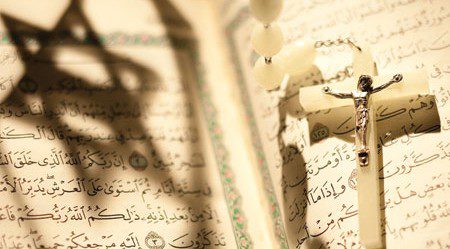As we develop tolerance, acceptance, and love for others, we draw closer to Christ.

I was raised Catholic and practiced Catholicism until I was in college. My conversion to The Church of Jesus Christ of Latter-day Saints came after a long, painful time in my life, brought about by having rejected what I had learned about God as a child. The conversion process told me that, although I had rejected religion, God hadn’t forgotten about me. He knew where I was in my journey, and He loved and cared about me—even when I wasn’t living according to His teachings. Experiencing another religion, living for a time without religion, and exploring other faiths taught me significant principles of tolerance and acceptance.
1. Look for Commonalities. As pastor of a Catholic church in Pittsburgh, Penn., my brother is devoted to his parishioners, programs, and school. As I attend Catholic services when I visit my brother, I see more similarities than differences in our religions. He has a deep love for the scriptures, and I am always touched when I hear him talk about his love for the Savior. I know that the Lord receives my brother’s love and blesses him for it.
2. Accept People Where They Are. My father, who is not a Latter-day Saint, is a powerful example to me because of his spiritual depth. He goes to mass every morning and reads the priest’s prayers morning and night. My father also says heartfelt personal prayers with a reverence like no other I have experienced. I know God loves and admires my father for living according to the light he has.
3. Reflect on the Goodness in Other Religions. My mother, who passed away in 1992, was outstanding in her ability to accept the goodness in other religions. Although she, like my father, had been raised a Catholic, my mother was influenced by her father, who had been a Lutheran before converting to Catholicism to marry my grandmother. He stopped attending the Lutheran Church, but he maintained his deep faith and longed for his own religion. After I converted to the Church, I told my mother about the restored gospel. She could see where it could be true, but she wanted to be loyal to my father’s devotion to Catholicism. Later, after doing my mother’s temple work, I strongly felt her presence with me. I am convinced that my mother’s openness—and my respect for her beliefs—eventually led her to the fullness of the gospel.
4. Value What We Can Learn from Others. My son served a mission in an area presided over by Elder Lynn A. Mickelsen, who shared this message after learning that some missionaries were making disparaging remarks about other religions: “[Members of other religions are] honorable people. They teach the commandments; they teach of Christ. In the seventh chapter of Moroni, Mormon . . . makes it clear that if people are teaching of the Christ, they are of Him. Both Joseph Smith and Brigham Young taught that we need to gather everything good we can from everyone else in the world. The goodness and teachings of other religions often become the base for preparing individuals to accept the fullness of the gospel.”
5. Give a Soft Response. As I mentioned, one of my brothers is a Catholic priest; ironically, my other brother disregards organized religion and likes to negate Christian doctrine. I’m careful in my dealings with him to avoid saying things that will drive away the Spirit or fuel the debate. I have also encountered friends who have been critical of my beliefs. I have been careful to respond mildly and respectfully. After several such interactions, friends have apologized for their harshness.
I am grateful for each encounter I have had, before and after becoming a member of the Church, with individuals from different faiths and backgrounds who have enriched my life. I believe that we draw nearer to Christ as we love, serve, and accept those from different religions and backgrounds. It is my prayer that we all can have the respect our Savior would have us feel for all our brothers and sisters—people He loves and for whom He atoned.
Barbara Culatta is a BYU professor of communication disorders. This essay is adapted from a devotional address given Feb. 3, 2009. The full text is available at speeches.byu.edu.









